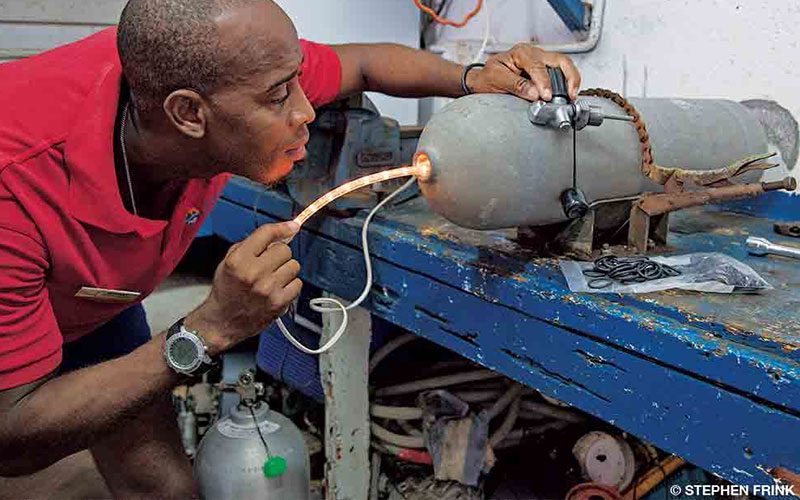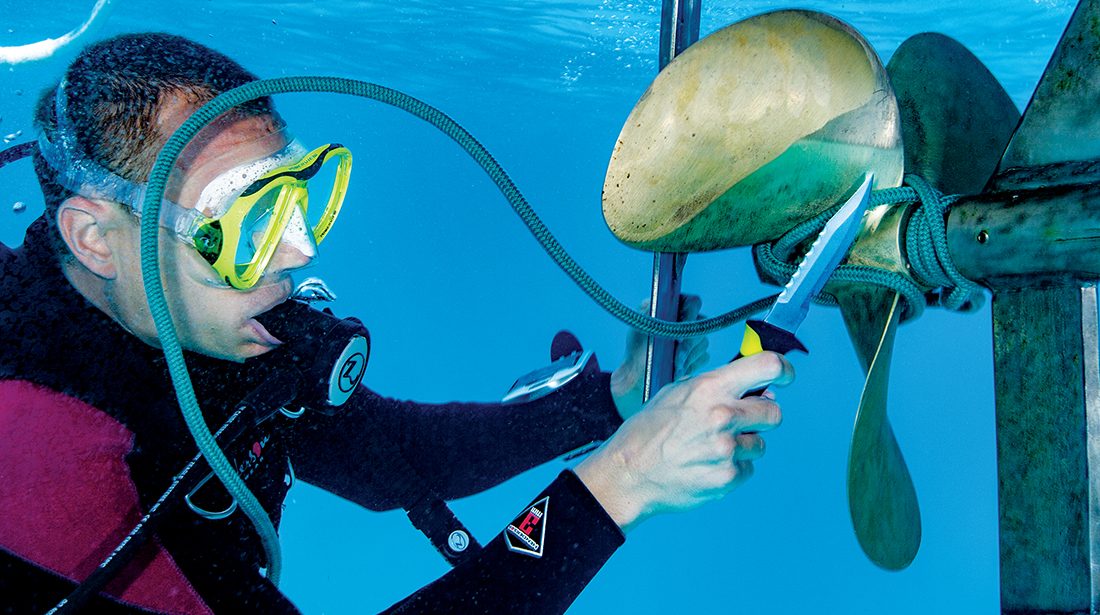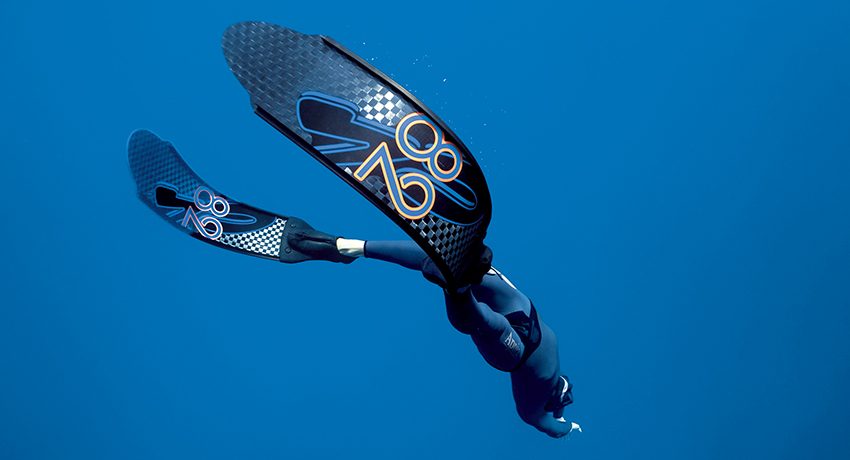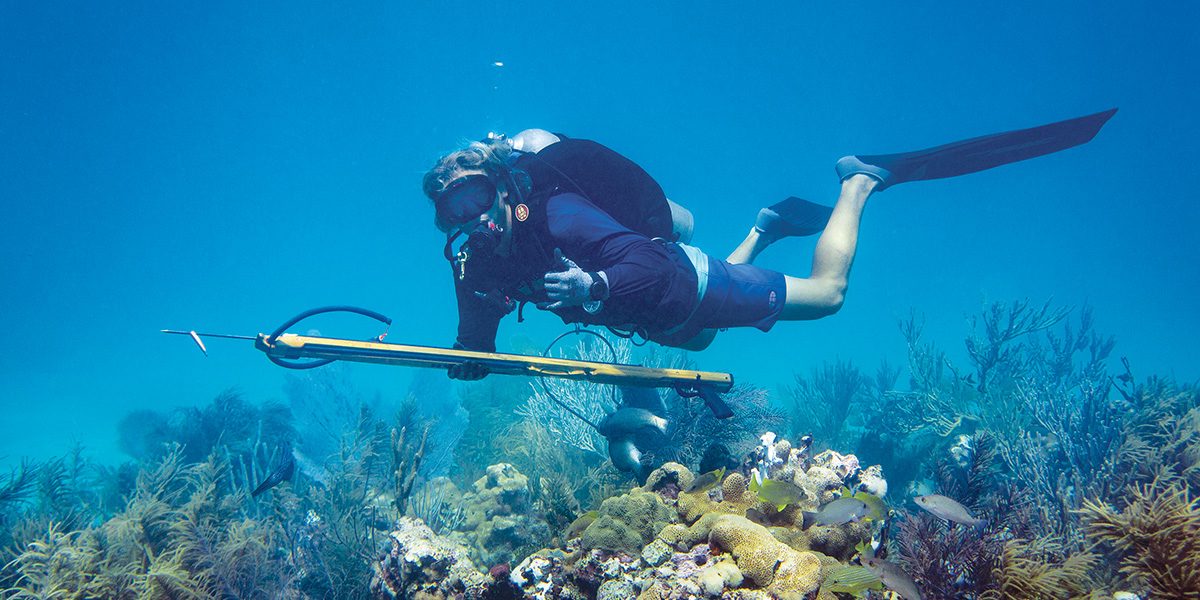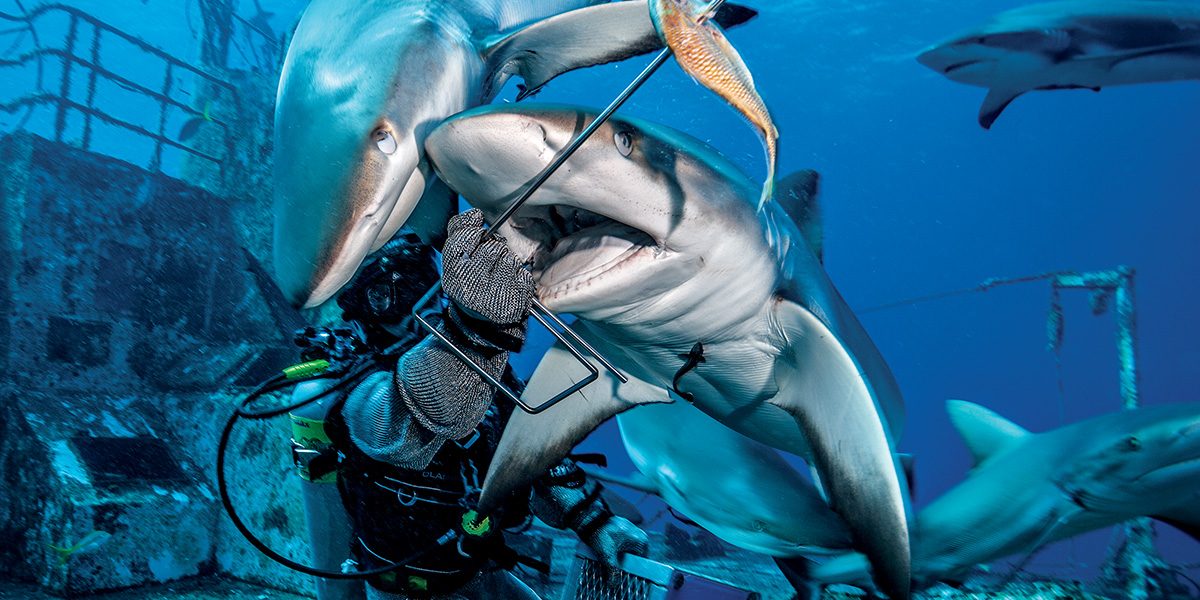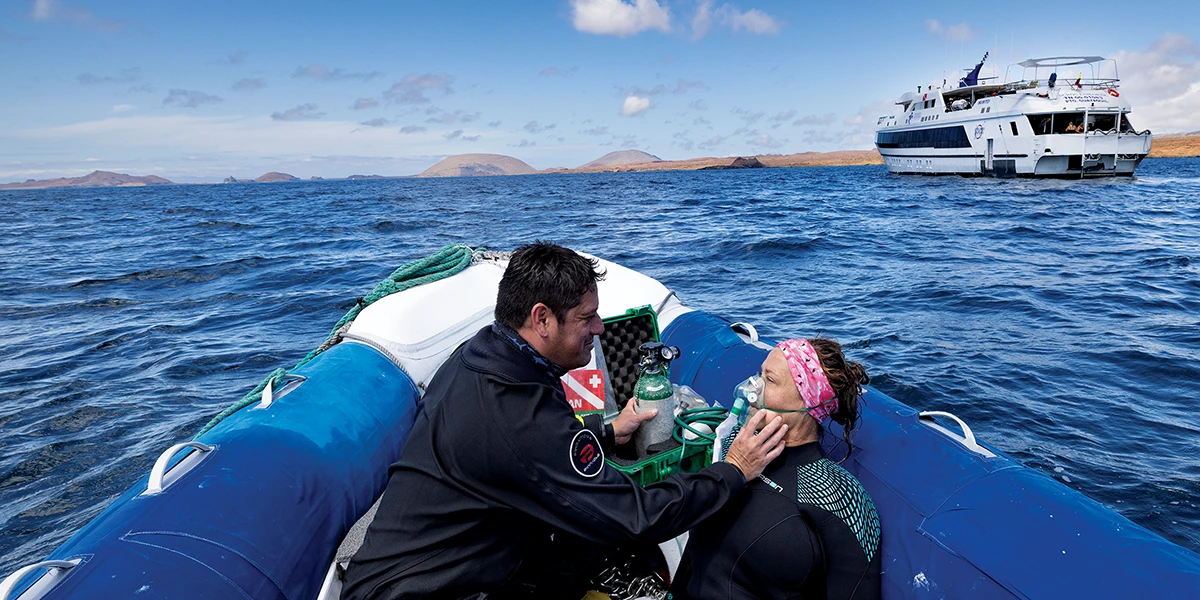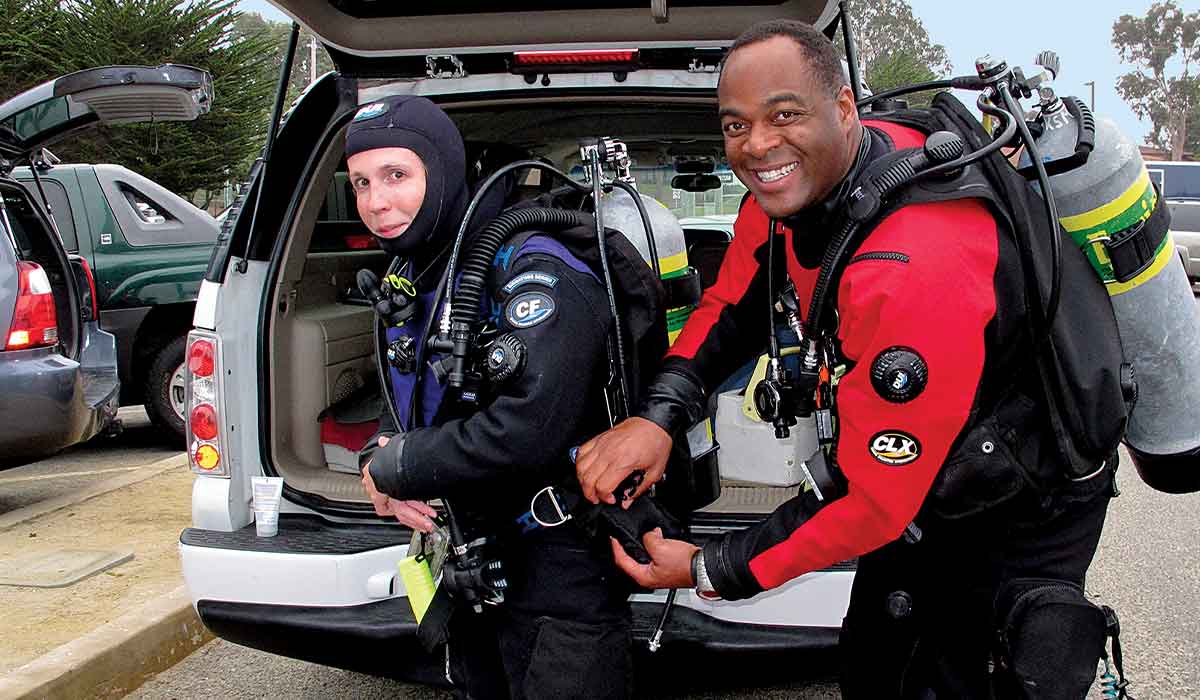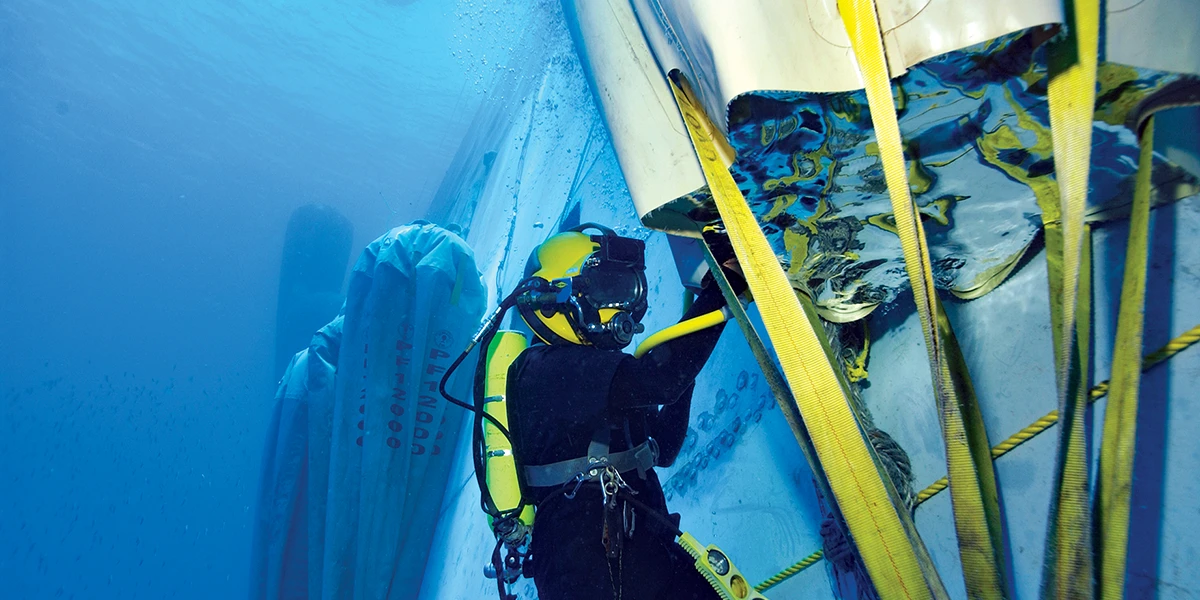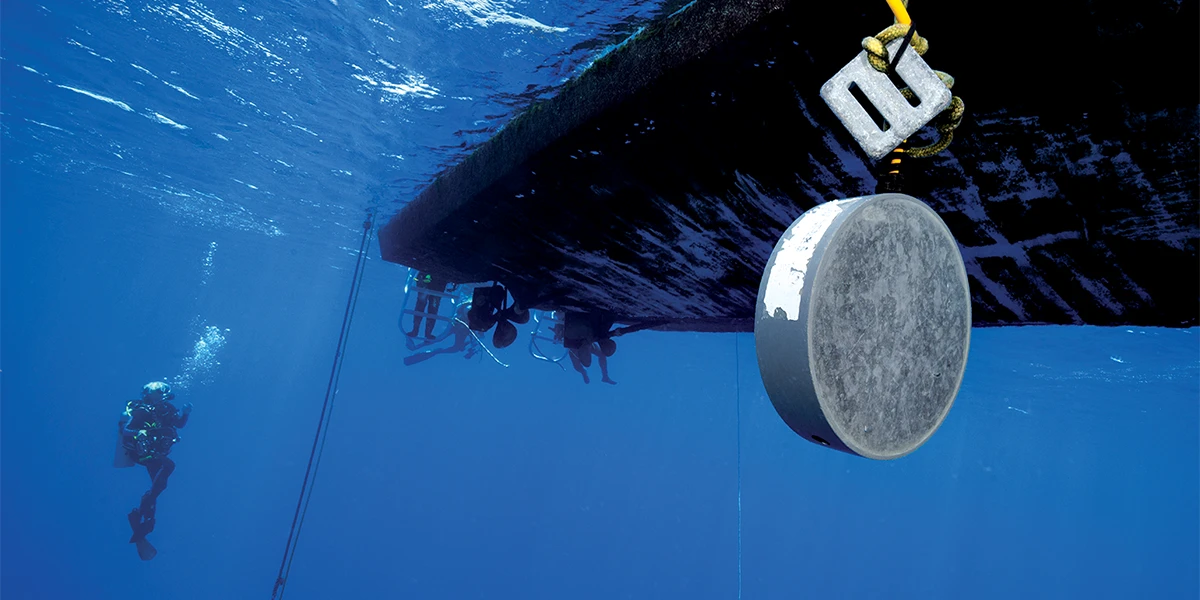After the rupturing of two alloy scuba cylinders, many wonder if they are safe to use? While cracking was documented in these cylinders, a major issue with their use is lack of consistent training and regulation in the testers, inspectors and fill-station operators.
THE DIVE KNIFE IS AN ICONIC PART OF A SCUBA DIVER’S GEAR. Since the inception of diving as a recreational activity, the dive knife’s presence in a diver’s equipment has […]
IN THE 1900s UMBERTO PELIZZARI was a young diver from Busto Arsizio, Italy, who was making headlines by breaking world records in constant weight and variable weight freediving. Needing an […]
The decision to sustainably harvest marine life can spark vigorous discussions among divers. Regardless of your views, there are benefits to understanding the equipment, procedures, and dangers associated with spearfishing.
Many divers seek interactions with sharks, but others actively seek to avoid them. As long as sharks are in the water, people will look for ways to reduce the lethality of a shark bite or decrease encounters altogether.
Oxygen is the standard of care for first aid in dive injuries. You do not need to determine if the injured person is experiencing decompression sickness (DCS), arterial gas embolism (AGE), or nonfatal drowning, as oxygen can be beneficial in all these situations.
Sorb, or scrubber, plays a critical role in rebreather diving, as it is responsible for removing carbon dioxide (CO2) from the diver’s breathing gas. Small granules or pellets absorb exhaled CO2 and allow oxygen to pass through. This chemical process allows rebreathers to recycle exhaled air, limiting gas consumption and allowing longer dives.
Drysuits enable divers to dive longer and test their own abilities. Do you know drysuit basics? Cultivate a better understanding of drysuits and how to find the right one.
Divers generally use lift bags to raise submerged objects to the surface. The lift bag is filled with gas until the object exhibits neutral buoyancy so divers can bring it to the surface with minimal exertion.
Whether for recreation, research, or commercial work, diving puts humans in a fundamentally hazardous environment. Visibility, pressure effects, and sound distortion limit communication between divers and surface teams, making real-time coordination difficult. Response time is critical in emergencies, and delays can be dangerous.
